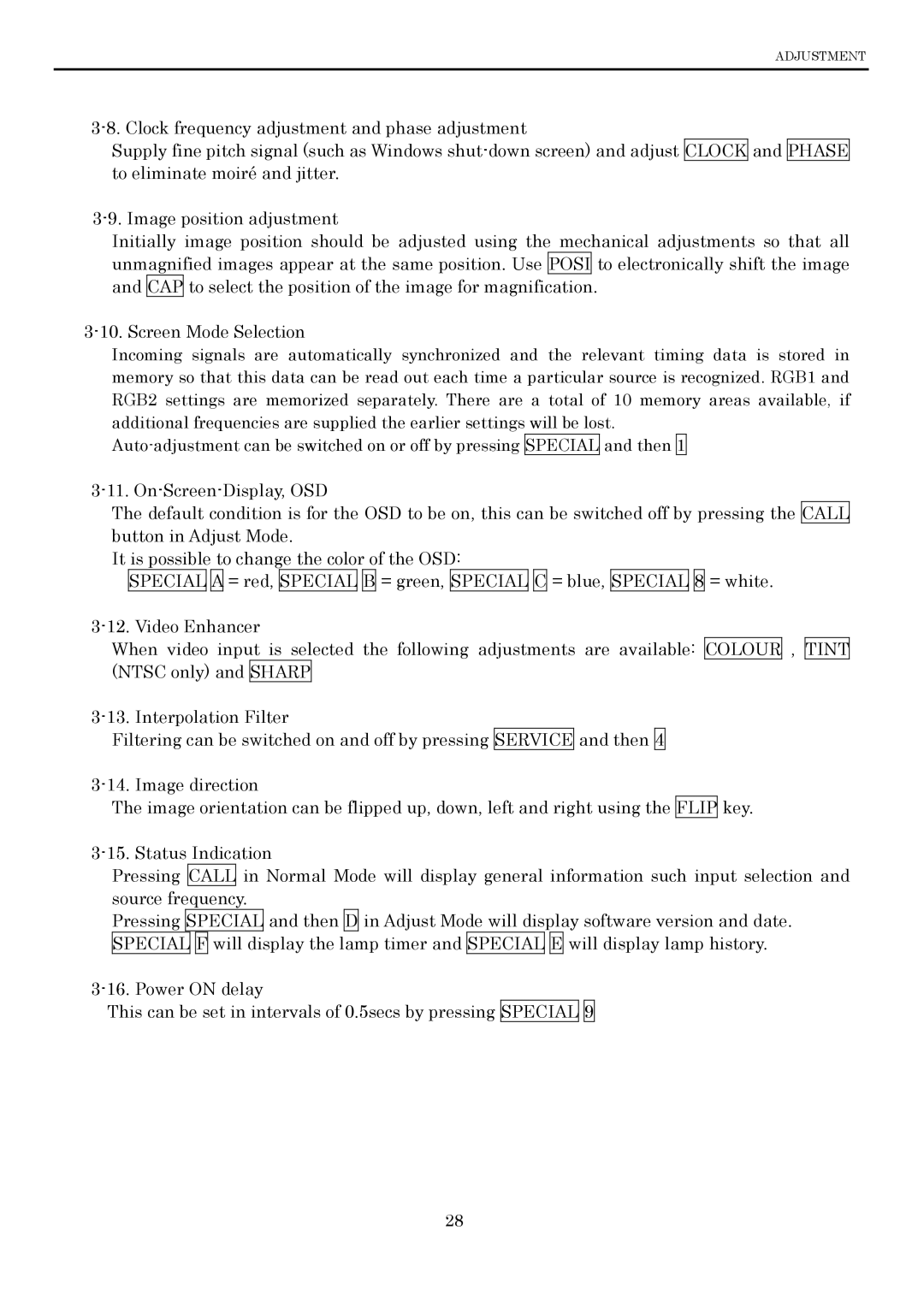
ADJUSTMENT
Supply fine pitch signal (such as Windows
Initially image position should be adjusted using the mechanical adjustments so that all unmagnified images appear at the same position. Use POSI to electronically shift the image and CAP to select the position of the image for magnification.
Incoming signals are automatically synchronized and the relevant timing data is stored in memory so that this data can be read out each time a particular source is recognized. RGB1 and RGB2 settings are memorized separately. There are a total of 10 memory areas available, if additional frequencies are supplied the earlier settings will be lost.
The default condition is for the OSD to be on, this can be switched off by pressing the CALL button in Adjust Mode.
It is possible to change the color of the OSD:
SPECIAL![]()
![]() A = red, SPECIAL
A = red, SPECIAL![]()
![]() B = green, SPECIAL
B = green, SPECIAL![]()
![]() C = blue, SPECIAL
C = blue, SPECIAL![]()
![]() 8 = white.
8 = white.
When video input is selected the following adjustments are available: (NTSC only) and SHARP
Filtering can be switched on and off by pressing SERVICE and then 4
COLOUR , TINT
The image orientation can be flipped up, down, left and right using the FLIP key.
Pressing CALL in Normal Mode will display general information such input selection and source frequency.
Pressing SPECIAL and then D in Adjust Mode will display software version and date. SPECIAL![]()
![]() F will display the lamp timer and SPECIAL
F will display the lamp timer and SPECIAL![]()
![]() E will display lamp history.
E will display lamp history.
This can be set in intervals of 0.5secs by pressing SPECIAL![]()
![]() 9
9
28
